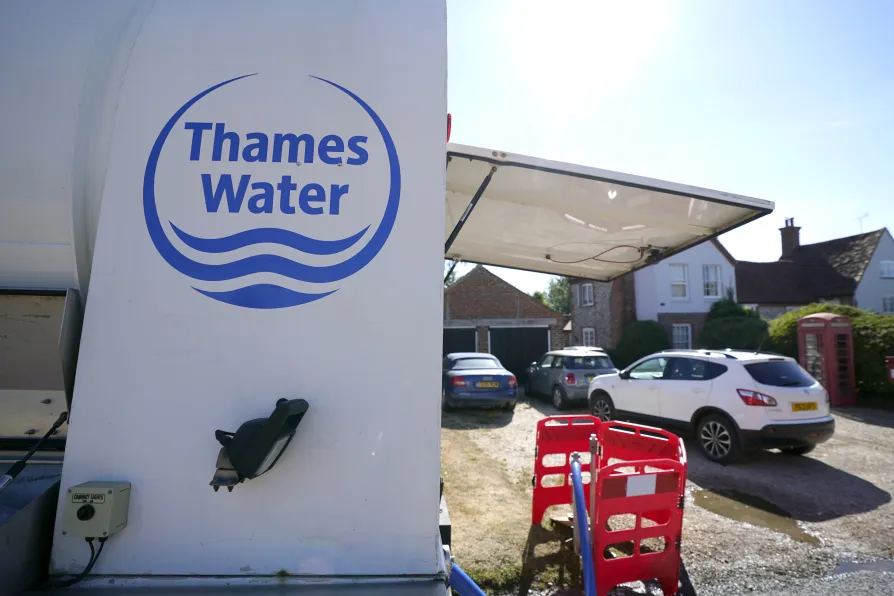Error message
An error occurred while searching, try again later.
 A tanker from Thames Water
A tanker from Thames Water
INVESTMENT in Britain’s water utilities took a dive under Thatcher’s government. By 1980 investment by the regional water authorities dropped by two-thirds as the neoliberal straitjacket into which public expenditure was confined limited their ability to raise capital.
Contrast this to the present situation where the now privatised water companies have racked up millions in loans that seem more valued as a source of ready cash to pay bonuses, dividends and sweeteners than infrastructure investment.
The total debt burden of the dozen privately owned water companies stands at £65 billion which this year’s Commons report says is perilously close to the 70 per cent gearing at which commercial credibility is compromised.
Jo Maugham, director of the Good Law Project, which has been involved in legal challenges to a number of water companies, says: “The water sector has been poorly regulated for decades. It has been poorly regulated primarily by allowing water companies to over extract water from aquifers and reservoirs but also cash from operating entities within the water companies, and they’ve been allowed to underinvest in water infrastructure.”
In the last few months the number of criminal investigations into sewage dumping by water companies has climbing towards the hundred mark.
It is in this stagnant pool of neglect, incompetence, corruption and profit-gouging the private owners and directors have not only drained the enterprises of cash but have so loaded the operations with debt that their very stability and survival is in doubt.
Thames Water, the company closest to terminal crisis, has agreed to pay £24.5 million of its record £122.7m in fines.
These fines will be a further burden on the customers compelled to finance these failing operations through ever-increasing water charges.
The Thatcherite rationale for privatisation, adopted wholesale by Tony Blair and Gordon Brown’s governments, enshrined in the EU’s Maastricht and Lisbon treaties and still the core element of Westminster Labour’s economic policy, was that the private sector would take the risk and the public would benefit.
This idea is the political equivalent of a dead parrot, drowned in a river of ridicule.
Private ownership is favoured by just one in 12 people while seven out of 10 want water to be run in the public sector. Remarkably these sentiments remain constant across every region, for both men and women, all ages and political opinion.
That private ownership is so universally unpopular yet seems immutable is a demonstration of just where class power lies.
The logical case for public ownership is sometimes challenged by the suggestion that taking these failing enterprises into public ownership would be prohibitively expensive.
This is, of course, true if these enterprises were to offered for sale at the price their owners value them. A socialist government armed with a popular mandate and backed by a working class armed with both resolve and the necessary instruments of coercion might simply dispossess these rapacious incompetents and instruct them, individually and as a class, to find an alternative way of making a living freed of the responsibilities of ownership.
For this we have historical precedent but even if a transition to public ownership took a less popular and precipitate route it might simply take a look at how these companies’ debt burden has reduced their market vale, take account of the level of profit-taking, emoluments and bonuses that have been paid out over the decades and set this against the nominal value of the enterprises.
We could even throw in a fast-track DWP career counselling interview for the people thus made redundant.










